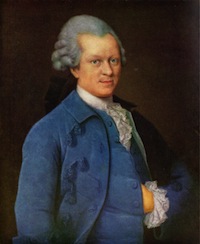
Recently I’ve had the pleasure of working as a dramaturg on a show called Am I Good Friend?, created by Yve Blake. What’s a dramaturg, you ask? … I dunno!
One thing I do know is that for all the confusion around the job title, it’s not a new one. The dramaturg as understood today is thought to have originated with 18th Century German playwright Gotthold Ephraim Lessing. Gotthold worked (as he believed all dramaturgs should) directly with a theatre company, and is thought of as having set the standards for the discussion of aesthetic and literary principles. Essentially, it was his job to read a play, have a think about it, say his thoughts out loud or in writing, and distribute them to anyone who cared to listen.
Perhaps a more commonly held conception of what a dramaturg is would be the dramaturg as researcher. In high school drama classes, students are taught that the dramaturg is the person who collects all of the information the cast and crew might need to create a cohesive and well-informed production. For example, if you’re putting on The Crucible, the dramaturg will get you some background info on the Salem witch trials.
Neither of these definitions of a dramaturg are really true – or rather, they don’t paint the whole picture. It’s a curious role with many different definitions. Perhaps the best I’ve found, though, was given to me in a workshop with dramaturg Cristin Kelly. Cristin identifies three roles served by the dramaturg: ‘scholarship, research and reading’; ‘production liaison’; and ‘audience liaison’.
The scholarship, research and reading part refers not so much to any specific tasks as it does to the lifestyle and background of the dramaturg. As a professional – and especially one working for a theatre company – a dramaturg must be familiar with a wide range of dramatic texts and styles, and must engage in research and reading constantly, be that research into a specific production, or just to further his/her own wealth of knowledge.
Production liaison is split again into two different but not completely separate roles. During the development of a new work, a dramaturg will meet frequently with the writer, and provide them with feedback that will help to make the work a more cohesive whole. This work may continue into the production period, but once the play is ready for rehearsal, the role of the dramaturg becomes similar to the researcher role detailed earlier. Before production begins, a dramaturg will create a research packet for the creative team and (if the director likes) the cast of the show. This might involve real events and places mentioned in the play, but can also involve more thematic research, or research necessitated by a design concept situating the piece in a particular time or place.
The last part of the job description, audience liaison, again applies pretty specifically to dramaturgs working with a production company. It may fall to the dramaturg to create copy for programs and generate material for educational resources, as well as leading post-show Q&As in some instances. Ultimately, in some cases it becomes the dramaturg’s job to communicate the show to audiences in any media other than the actual show itself.
Phew! The fact that it takes that long to detail the role should be some indication of what a minefield it can be for a dramaturg in terms of navigating the way they fit into each new production team. From my limited experience, though, all of this can be simplified to two essential tasks:
- Define your role upon joining a production team. Sitting down for half an hour with the director of the show can do wonders for the clarity of everyone’s expectations, and these will always be flexible as the production evolves.
- Ask questions. This is relevant at every stage of the dramaturgy process, but never more than when working with writers. Ask things that will get to the heart of what they are trying to say. Many a seasoned dramaturg will tell you that asking a writer what they can do with a particular section of their play will yield much more interesting results than will telling them what to do.
Want to learn more about what dramaturgs are, how they do, and whether you should trust them? Come along to our Playwriting Festival on March 3rd for our panel on the topic – “Dramaturgs and Directors – Getting Them to ‘Get’ You”, featuring panelist Duncan Graham (Ollie and the Minotaur, Cut, Wolf Lullaby).
